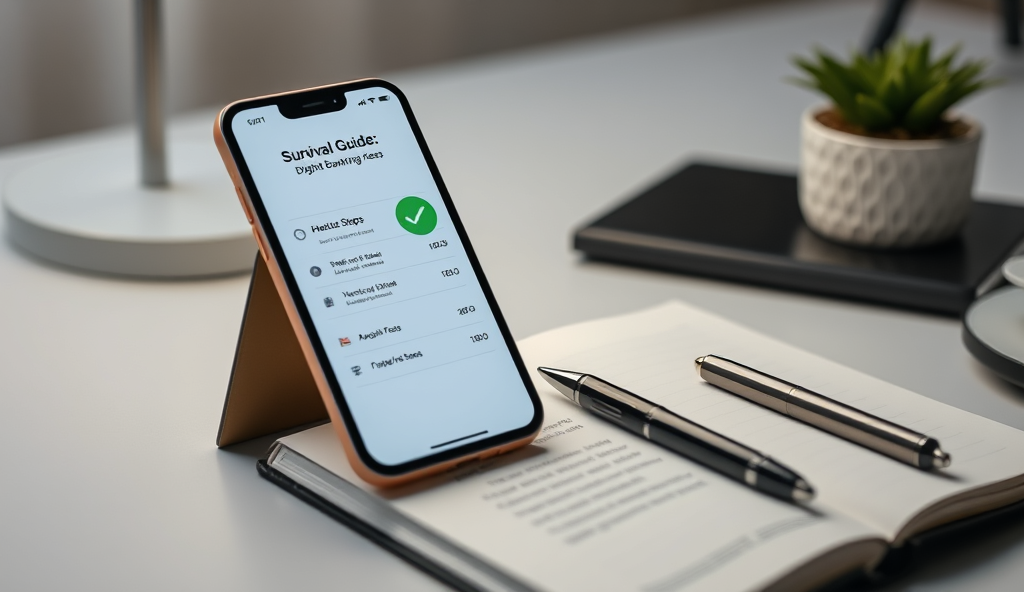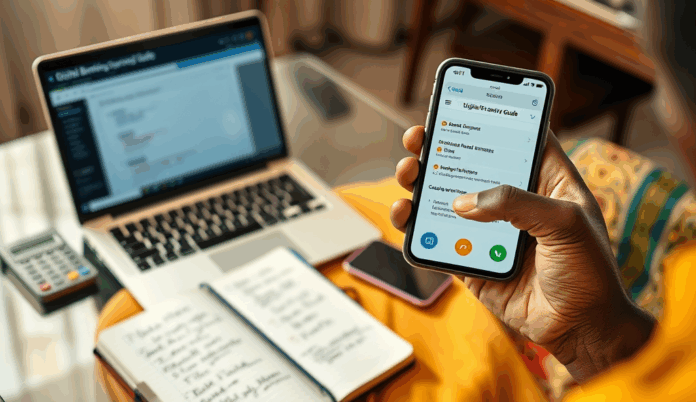Introduction to Digital Banking Fees in Nigeria
Digital banking fees in Nigeria have become an unavoidable part of financial transactions, with banks charging for services ranging from USSD banking costs to interbank digital transfer fees. A 2023 report by the Central Bank of Nigeria revealed that digital transaction fees account for 15-20% of banks’ non-interest income, highlighting their growing significance in the financial ecosystem.
These fees vary across platforms, with mobile banking transaction fees typically lower than ATM withdrawal charges for digital banks in Nigeria. For instance, transferring N5,000 via a bank app might cost N50 while the same transaction via USSD could attract a N25 charge, creating pricing disparities customers must navigate.
Understanding these fee structures is crucial for Nigerian bank customers seeking to optimize their digital banking experience. As we explore common digital banking fees in the next section, you’ll discover practical ways to minimize these costs while maintaining seamless transactions.
Key Statistics

Understanding Common Digital Banking Fees in Nigeria
Digital banking fees in Nigeria have become an unavoidable part of financial transactions with banks charging for services ranging from USSD banking costs to interbank digital transfer fees.
Nigerian banks typically categorize digital banking fees into transactional, maintenance, and penalty charges, with transactional fees being the most frequently encountered by customers. For example, GTBank charges N52.50 for transfers above N5,000 via its mobile app, while Access Bank’s USSD transactions cost N6.98 per transfer, demonstrating how pricing varies across platforms and transaction types.
These fees often follow tiered structures based on transaction amounts, with many Nigerian banks implementing graduated charges that increase with transfer values. A N100,000 interbank transfer might attract N50 in fees through mobile banking but could cost N100 via USSD banking in Nigeria, creating cost differentials that impact frequent users.
Understanding these fee patterns enables customers to strategically choose between mobile banking transaction fees in Nigeria and other digital channels for optimal savings. The next section will break down specific types of digital banking fees charged across Nigerian financial institutions, helping you identify which charges are avoidable through platform selection or transaction timing.
Types of Digital Banking Fees Charged by Nigerian Banks
Nigerian banks typically categorize digital banking fees into transactional maintenance and penalty charges with transactional fees being the most frequently encountered by customers.
Nigerian banks impose three primary digital banking fees: transactional charges for transfers and payments, maintenance fees for account operations, and penalties for exceeding limits or failed transactions. For instance, Zenith Bank deducts N52.50 per mobile transfer above N5,000 while First Bank’s USSD banking in Nigeria costs N6.98 per transaction, showing how platforms influence pricing structures.
Transactional fees often follow amount-based tiers, with UBA charging N10 for sub-N5,000 mobile transfers but N25 for amounts up to N50,000. Maintenance fees like Access Bank’s N1/month SMS alert fee or GTBank’s N50 quarterly account maintenance charge accumulate silently, disproportionately affecting low-balance customers.
Penalty fees include Ecobank’s N105 charge for failed USSD transactions or Stanbic IBTC’s N100 fee for exceeding daily transfer limits. These charges highlight why understanding digital banking fees in Nigeria helps customers minimize costs through informed channel selection, setting up the discussion on why banks impose these fees next.
Why Nigerian Banks Charge Digital Banking Fees
Nigerian banks justify digital banking fees as operational costs for maintaining secure platforms covering expenses like USSD infrastructure mobile app development and fraud prevention systems.
Nigerian banks justify digital banking fees as operational costs for maintaining secure platforms, covering expenses like USSD infrastructure, mobile app development, and fraud prevention systems. For example, GTBank’s N50 quarterly maintenance fee helps fund 24/7 transaction monitoring, while Zenith Bank’s N52.50 transfer charge offsets interbank settlement costs imposed by the Nigeria Inter-Bank Settlement System (NIBSS).
These fees also serve as revenue streams, with CBN data showing Nigerian banks earned N150 billion from electronic transactions in 2022 alone. Banks like Access Bank structure tiered pricing (N10-N25 per transfer) to encourage smaller transactions that reduce system congestion while monetizing high-value transfers differently.
Regulatory requirements also drive some charges, as seen in Ecobank’s N105 failed transaction fee which covers penalty costs from NIBSS. Understanding these rationales helps customers make cost-effective choices, naturally leading to strategies for minimizing these expenses discussed next.
How to Avoid Digital Banking Fees in Nigeria
Understanding bank fee structures enables customers to strategically minimize digital banking charges such as opting for USSD banking codes that offer lower transfer fees than mobile apps.
Understanding bank fee structures enables customers to strategically minimize digital banking charges, such as opting for USSD banking codes (*737# for GTBank) that offer lower transfer fees than mobile apps. Some banks like First Bank waive maintenance fees for accounts with monthly deposits above N50,000, while Access Bank’s tiered pricing favors bulk transfers to reduce per-transaction costs.
Regulatory exemptions also exist, like the CBN’s 2020 policy eliminating USSD charges for transfers below N5,000, which customers can leverage by splitting large payments. Platforms like Opay and Palmpay often provide fee-free interbank transfers during promotions, though users should verify transaction limits to avoid unexpected charges.
Timing transactions outside peak periods (9am-3pm) reduces failed payment risks and associated penalties, as seen with Ecobank’s N105 failed transaction fee. These proactive measures create a foundation for further optimization, which we’ll explore in deeper strategies next.
Tips for Reducing Digital Banking Fees in Nigeria
By implementing the strategies discussed Nigerian bank customers can significantly reduce digital banking fees from USSD banking costs to interbank digital transfer fees.
Consolidate transactions to benefit from tiered pricing structures, as seen with Access Bank’s bulk transfer discounts that lower per-transaction costs by up to 30% compared to individual transfers. Regularly monitor fintech promotions, as platforms like Kuda Bank periodically waive interbank transfer fees for users who maintain minimum balances above N10,000.
Schedule bill payments during off-peak hours (after 8pm) to avoid network congestion and subsequent failed transaction penalties, which cost N105 per attempt in banks like Zenith. Link your accounts to digital wallets like Opay for fee-free intra-network transfers, though always confirm daily limits to prevent unexpected charges.
Optimize USSD banking for small transactions under N5,000 to leverage CBN’s fee exemption policy, while using mobile apps for larger transfers where flat fees become proportionally smaller. These tactical approaches set the stage for evaluating which Nigerian banks offer the most favorable digital banking fees, which we’ll analyze next.
Best Banks with Low Digital Banking Fees in Nigeria
Following the cost-saving strategies discussed earlier, Access Bank leads with its bulk transfer discounts and N25 flat fee for intra-bank mobile app transfers under N50,000, significantly lower than GTB’s N52.50 charge for similar transactions. Kuda Bank remains competitive with zero monthly maintenance fees and free transfers below N10,000, though their N10 charge per USSD transaction contrasts with Sterling Bank’s fee-free *737# services for small transactions.
First Bank’s mobile app offers the most economical interbank transfers at N45 for amounts up to N50,000, compared to Zenith’s N52.50, while Opay’s digital wallet provides completely free intra-network transfers—ideal for users who frequently transact with other wallet holders. These institutions demonstrate how strategic banking choices can minimize digital banking fees in Nigeria, paving the way to explore alternative solutions next.
Alternative Digital Banking Solutions to Avoid Fees
Beyond traditional banks, fintech platforms like Moniepoint and Piggyvest offer fee-free transfers between their users, similar to Opay’s digital wallet model, while PalmPay provides zero charges for airtime purchases and bill payments—ideal for frequent small transactions. These platforms often integrate USSD codes like *222# (PalmPay) or *326# (Moniepoint) with lower fees than conventional banks, though transaction limits may apply.
For businesses, Flutterwave’s virtual accounts and Paystack’s payment links enable fee-free collections from customers, contrasting with typical corporate account charges from traditional banks. Peer-to-peer platforms like Carbon also facilitate free transfers between users, though withdrawals to external accounts attract minimal fees compared to standard interbank transfer charges.
As these alternatives gain traction, understanding their fee structures becomes crucial before transitioning—knowledge that will prove valuable when negotiating with traditional banks in the next section.
How to Negotiate Lower Digital Banking Fees with Your Bank
Armed with knowledge of fintech alternatives like PalmPay’s zero-charge airtime purchases or Flutterwave’s fee-free business collections, approach your traditional bank with evidence of competitive pricing—Nigerian banks often waive fees for high-value customers or those threatening to switch. Highlight your transaction volume, as banks like Zenith and UBA may reduce mobile banking transaction fees for active users to retain business.
For USSD banking costs in Nigeria, request bundled packages—some banks offer discounted rates for bulk transactions, similar to Opay’s *326# model, especially if you cite competitors’ lower interbank digital transfer fees. Business clients can leverage Paystack’s free payment links as bargaining chips to negotiate corporate account charges downward.
Always document agreements, as verbal promises on e-banking service fees often go unfulfilled—this prepares you for the final step: strategically combining these tactics to minimize costs, which we’ll explore in the conclusion.
Conclusion on Avoiding Digital Banking Fees in Nigeria
By implementing the strategies discussed, Nigerian bank customers can significantly reduce digital banking fees, from USSD banking costs to interbank digital transfer fees. For instance, opting for bank app transfers instead of USSD codes can save up to 50% on transaction charges, as seen with GTBank and Zenith Bank’s fee structures.
Understanding your bank’s pricing model for mobile banking transaction fees and ATM withdrawal charges is key to making cost-effective choices. Many customers unknowingly incur extra costs by using premium USSD codes when free alternatives exist within their bank’s mobile app.
As digital banking evolves, staying informed about regulatory changes and new fee-free services will help Nigerians maximize savings. The next section will explore emerging trends in Nigeria’s digital banking landscape that could further minimize costs for users.
Frequently Asked Questions
Which Nigerian bank offers the lowest mobile banking transaction fees for transfers above N50000?
First Bank currently charges the lowest at N45 for transfers up to N50000 via their mobile app compared to other major banks.
Can I avoid USSD banking costs in Nigeria for small transactions?
Yes use the CBN's fee exemption policy by keeping USSD transactions below N5000 which most banks implement including Access Bank and GTBank.
How can I reduce interbank digital transfer fees when sending money frequently?
Consolidate transfers into bulk transactions to benefit from tiered pricing structures like Access Bank's bulk transfer discounts.
Are there any digital banking platforms with completely free transfers in Nigeria?
Yes fintech platforms like Opay and PalmPay offer fee-free intra-network transfers between their users through their mobile apps.
What's the best way to avoid ATM withdrawal charges for digital banks in Nigeria?
Use your bank's mobile app for cashless transactions or withdraw from your bank's ATMs which typically don't charge withdrawal fees.


